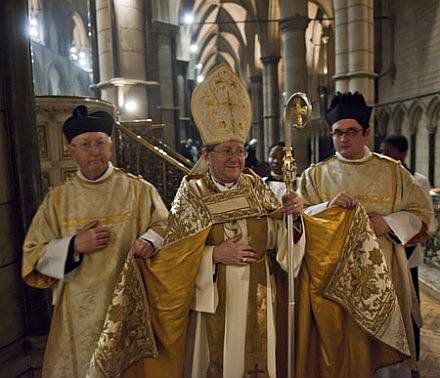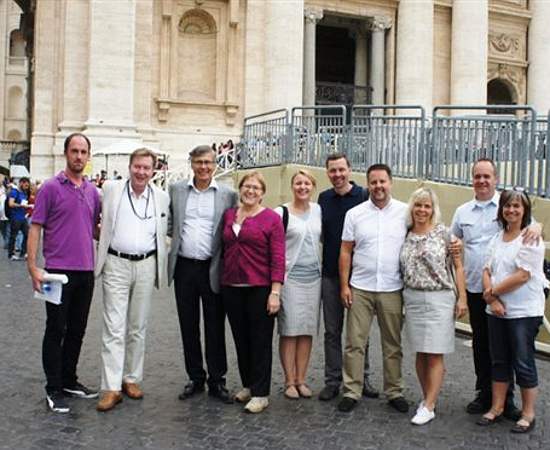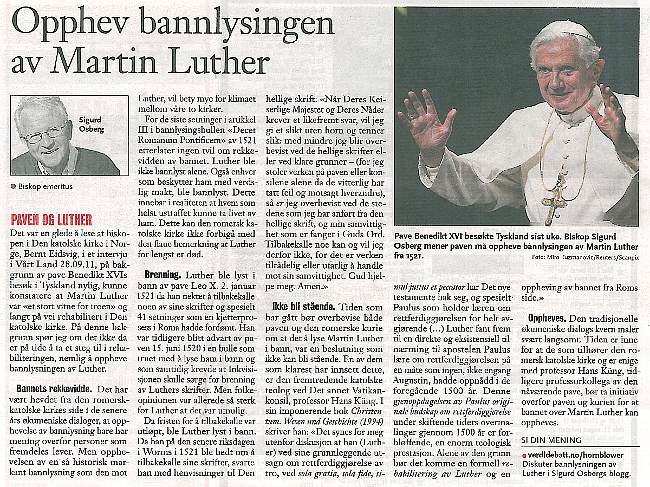Det engelske Ordinariatet er ett år

For ikke lenge siden feriet det engelsk ordinariatet ett år (se bildet med msgr. Newton over), og man begynner å diskutere i stadig større grad hvordan det går med dem. I alle fall skriver William Oddie i The Catholic Herald at han begynner å lure på hvor vennlige de engelske katolske biskopene egentlig er til dette pavelige initiativet. Jeg vet ikke selv hva jeg skal mene om dette så langt – og det er også mange kommentarer etter Oddies innlegg, les det gjerne selv:
I am beginning to put two and two together and not making four; or, to vary the cliché, I am beginning to smell a rat: I refer to the unfolding story of the Ordinariate of Our Lady of Walsingham. Others, I know, have beat me to it in this particular process. But I am a simple soul, I tend to look on the bright side and try to avoid paranoia where I can. I hope I am wrong: but I am, all the same, beginning to wonder if the warm support with which even quite unexpected people in our hierarchy (like Bishop Hollis) greeted the establishment of the ordinariate this time round (you will remember the extreme hostility with which they squashed the same basic idea in the 90s) was really as wholehearted as it seemed at the time: or were they simply saying what they knew the Pope wanted them to say, but without any real belief in the basic idea? Or maybe with the idea, this time, of getting the whole thing under way and then squashing it? …
William Oddie var selv anglikansk prest og sterkt involvert i det som skjedde i 1992, da flere hundre anglikanske prester i England ble katolikker. Han skrev en bok om dette i 1997, «The Roman Option», som jeg leste da den kom ut. Her skriver han at kardinal Hume var vennlig innstilt til alle disse konvertittene, og (med pave Johannes Pauls og Ratzingers støtte) gjerne vil gi dem muligheten til å konvertere kollektivt til en viss grad, og til å beholde deler av sin anglikanske tradisjon – men at dette brutalt ble stoppet av de andre katolske biskopene i England.



 Vårt Land hadde i sin papirutgave i går en overraskende artikkel med overskrift «Paven hyller Luther», som i alle fall er en hel del bedre enn «Strides om paven tilga Luther», som
Vårt Land hadde i sin papirutgave i går en overraskende artikkel med overskrift «Paven hyller Luther», som i alle fall er en hel del bedre enn «Strides om paven tilga Luther», som 